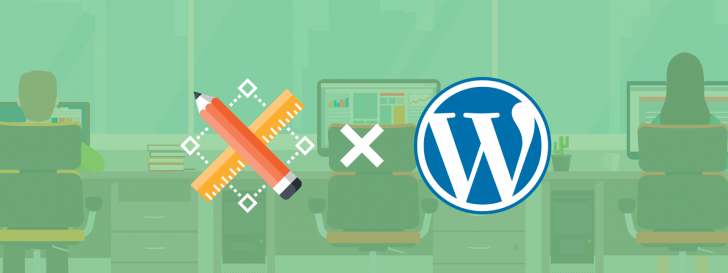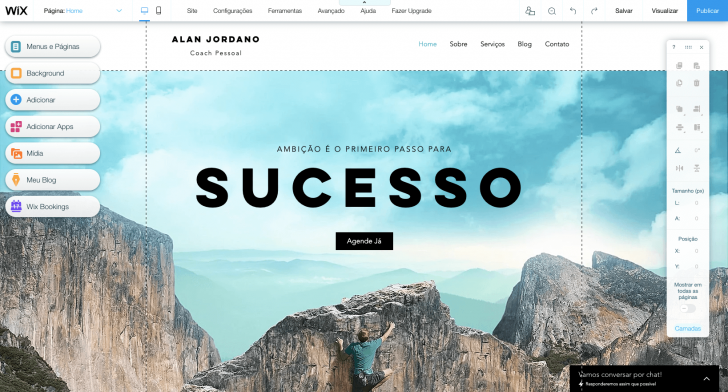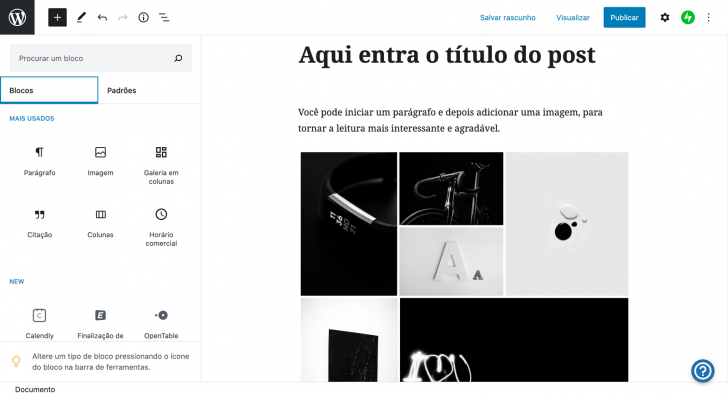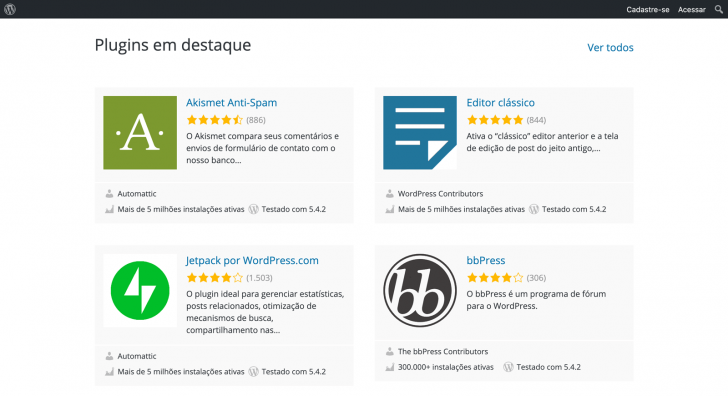

If you are unsure about which platform to select for designing your website, you are not alone. There are numerous tools available for creating websites independently.
Website builders and WordPress are widely used due to their user-friendly interface, affordability, and flexibility, making them excellent choices for creating websites. This article discusses the distinctions between the two and recommends the most suitable option for each scenario.
What technical expertise does the person developing your website possess?
It may seem unimportant at first, but your level of technical expertise is crucial when choosing a tool for building your website.
The website builder is perfect for individuals who wish to create their own website without knowledge of coding or design. It is user-friendly and provides all necessary features like themes and hosting.


WordPress is user-friendly, but lacks the same simplicity as a website builder. It demands more technical expertise due to the need for specific configurations, like hosting websites. The distinction lies in the installed version of WordPress versus WordPress.com, which is more akin to a website creator. To explore further disparities between the two versions, refer to our article “WordPress.com X WordPress.org.”
I suggest choosing WordPress if you decide to hire a professional or company to develop your website, as it is more flexible, scalable, and robust compared to a website builder.
What type of website, blog, or online store are you considering creating?
The kind of website you plan to make will also impact the selection of the best tool. Whether it’s a personal or business site, both website builders and WordPress are excellent choices, providing the essential tools needed.
WordPress is the superior tool for creating a blog, regardless of version or payment option, as it offers a more advanced blog feature compared to other website builders.


Blogger is another option that is free and supports custom domains, but it is less versatile compared to WordPress. To learn more about the distinctions between the two platforms, I suggest reading the article “Blogger or WordPress?”
If you intend to establish an online shop, there are additional choices available apart from the website builder and WordPress. The primary options include:
- Virtual store platforms are specialized solutions designed for online sales, offering themes, hosting, and various e-commerce features. These platforms cater to businesses of all sizes and include a free plan option.
- Magento is a powerful content management system designed for building personalized online stores. Despite its popularity, it demands greater investment in terms of development and upkeep compared to other alternatives.
- WooCommerce, a popular e-commerce plugin for WordPress, transforms a WordPress site into an online store, catering mainly to small and medium-sized businesses.
- Some website building tools provide e-commerce options suitable for websites selling digital products, online services, or small virtual stores.


How complex is your website?
Website builders have advanced significantly, providing a wide range of professional tools for creating websites. These tools enable users to easily customize their sites and add features without the need for coding, a task that previously required assistance from professionals.
Depending on your online project, you will probably encounter restrictions when using a website builder.
WordPress offers extensive customization options, enabling you to tailor your website to your preferences by utilizing plugins or creating custom solutions. While the platform provides a wide range of plugins and unparalleled customization capabilities, it is important to note that more complex projects may require significant investments in terms of time and money.


To illustrate the distinction between a website builder and WordPress, consider the scenario where you want to make a budget page that computes prices in real-time according to user input. In WordPress, you would need developer assistance to create this feature. Conversely, it would be challenging to create a custom solution in a website builder due to its limited flexibility.
How much flexibility is needed for your website?
It’s important to consider the future of your website. Determine whether you want to maintain its current size or if it’s a project that should expand in both size and traffic.
For institutional websites or local businesses, any of the tools will suffice. However, if you aim to expand and increase your audience over time, it is advisable to reconsider. While site creators offer some growth opportunities, they come with strict constraints such as space and traffic limits that must be observed, along with other inherent limitations.
WordPress, once installed, can be completely tailored to your needs. The availability of space and traffic resources is highly adaptable, depending on the hosting service chosen. This means that as your website grows in both resources and visitors, you can easily migrate to a new hosting provider that can cater to your expanding requirements while still using WordPress as your site platform.
If your website outgrows the maximum capacity of the highest-tier plan on the website builder, you will have to build your site using a different tool. Unlike WordPress, which is free and open source and can be hosted by any company, this particular model does not allow for site migration outside of the platform provider company.
Why is SEO important to you?
Consider this: the performance of your website relies significantly on whether it attracts visitors searching for your Google segment or if it caters to an audience already familiar with you or your business.
If you aim to garner significant traffic from Google without paying for ads through your website launch, prioritizing SEO is crucial. However, if your objective is to engage with your existing audience and customers rather than attracting new visitors, SEO may not be as critical for your site.
SEO stands for Search Engine Optimization and focuses on implementing best practices to ensure that your website is well-optimized for search engines. It is important to note that WordPress, known for being one of the most user-friendly platforms, offers more advanced SEO capabilities compared to most other website creation tools.
If SEO is crucial for your project, then definitely switch to WordPress. 😉
How much are you looking to invest in the website?
The investment required to build a website varies between website creators and WordPress, as money can pose a limitation in any project.
The website builder is typically the most cost-effective choice, with monthly fees ranging from R$ 6 to R$ 15. These plans provide access to various templates for your site, and some even include a free domain for the first year. This low initial investment mainly covers the subscription fee and your time.


When deciding to use WordPress, you can choose to hire a professional or agency to create your website or take on the design yourself. The cost of outsourcing website development can range from $500 and upwards, depending on the complexity of the project. In addition, you will need to invest in website hosting, which typically costs around $10 per month, and a domain name, priced at approximately $50 annually. Opting for a premium theme for your site will incur an extra one-time expense of $30 to $80.
In the case of WordPress, the initial cost may be higher compared to site builders, but over time, the expenses can decrease significantly, especially for a simple website where you handle maintenance.
If you have a tight budget and want to make a website, consider using a site builder like WordPress and create the site yourself. Learn more from our tutorial on building a WordPress site or a free WordPress course.
What should you choose: a website builder or WordPress?
The best tool for building your website depends on various factors such as who will be constructing it, the budget, and the type of website desired.
Discover the top website creators through our rankings if you relate to the website creator. If you lack technical expertise but prefer WordPress, take advantage of a free tutorial on creating a WordPress site.
Wishing you success with your project! Feel free to ask any questions by leaving a comment. 🙂
Publication date: 14/02/2017 (last updated on 22/06/2020)
Tags: Contrast, WordPress
